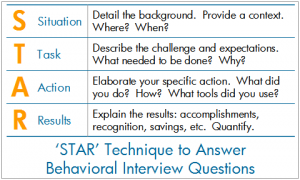In the context of careers and employment, “skills” are broadly defined to include a broad range of abilities and talents, as well as technological expertise.
One could focus on skills related to communication skills (writing, presentation, etc.), computer skills, analytical skills, and any number of other attributes – some easily measurable and some more a case of perceptions.
Transferable skills are competencies learned in one environment that can easily be employed in other settings. These are all good things to offer a prospective employer; and one does not so much “transfer” these qualities as one “applies” them.
I perform transferable skills analyses by hand. I do not use a computer program because I can use my own brain power!
Amy’s Methodology for Transferable Skills Analysis
For a multifaceted manual, primarily paper-based transferable skills analysis, it makes good sense to use a person-centered-approach (rather than relying on procedural-based computerized software that offers only quick suggestions based on input).
Allowing for the person’s background, there are many valuable transferable skills checklists to draw out detail on past work skills that provide data for vocational consideration. Here’s one > TRANSFERABLE SKILLS CHECKLIST
I find it useful to access Occupational Information Network referred to as O*Net along with other vocationally specific career resources. In addition, a good source of desirable transferable skills can be found in job postings. These research activities to collect and process all relevant, reasonable and appropriate skills that comprise the person’s capacity set the stage to justify results.
Setting the Stage is Just as Important as the Production
To connect the person’s transferable skills with real occupations that actually exist, I research the person’s labor market and connect with those local employers using a search strategy over time. I find this is the best medium to achieve results.
5 Steps to Take Include:
- Examine complete work and volunteer history and any other vocationally significant background
- Compile skill set represented by general work requirements (aptitudes, knowledge, and capacities)
- Analyze and translate skills relative to specific occupational areas of work, which could be broad or narrow in range
- Research other work to identify new jobs with same general work requirements and similar skills
- Match the jobs within the data and group according to what skill is needed in various work settings/situations
But that’s not the end!
Keep in mind a job seeker wants to “fit in” with the company culturally, and this is where work style and personalities come into play. I find at times that using a personality assessment (which is concerned with the process of qualifying or describing a person’s behavior in specific circumstances) is helpful.
Linus van Pelt has Many Transferable Skills…at such a young age!
Linus is highly intelligent, so much that he totally has faith and anticipation in his own legendary being, the Great Pumpkin, and with good reason….because he refuses to be defeated. Linus is also skilled at baseball (2nd baseman and pitcher when Charlie Brown is nonfunctional; but not so much boxing (Lucy knocks him out!)
I am fully cognizant of the fact that every industry believes that there are certain skills that apply only to their industry, but in fact it has been proven over and over again that skills are transferable across industry lines.
I have good reason to believe that Linus van Pelt would make a good construction manager! He might also be successful at being a counselor, considering he knows what it’s like to feel insecure and take action to overcome his feelings.
Linus Would Also Make a Great Security Guard!
Here’s another Transferable Skills Worksheet (it’s pasted below as well) you can download. This one helps with interviewing for a job where you plan to apply your skills!
Transferable Skills ~ are those versatile skills that you can apply and make use of in many job situations. Below is a list of common transferable skills. Think about your own past experiences at work, school, while volunteering and through leisure activities.
Describe the experiences using the STAR * Method to demonstrate you have the skill.

* Situation * Task you were involved in * Action you then took * Result of your efforts
Work Ethic
Being punctual:
Meeting goals:
Setting high standards for self :
Produce quality projects/work:
Communication
Speaking effectively:
Writing concisely:
Listening attentively:
Perceiving non-verbal messages:
Facilitating group discussion:
Teamwork
Willing to share credit/power:
Collaborating with others:
Including others:
Empowering others:
Managing conflict:
Representing others:
Initiative
Initiating new ideas:
Promoting change:
Accepting responsibility:
Interpersonal
Cultivating relationships:
Conveying feelings:
Perceiving feelings, situations:
Problem-Solving
Identifying problems:
Developing evaluation strategies:
Demonstrates web-like thinking:
Analytical
Forecasting, predicting:
Extracting important information:
Constantly learning and reflecting:
Flexibility/Adaptability
Cooperating:
Enlisting help:
Open to difference:
Detail-Oriented
Follows directions:
Gathering information:
Managing details:
Organization
Reporting information:
Coordinating tasks:
Managing time:
Setting and meeting deadlines:
Leadership
Finding a common purpose/goal:
Articulating a vision:
Motivating:
Delegating with respect:
Managing groups:
Coaching:
Self-Confidence
Expressing ideas:
Asserting one’s self appropriately:
Defining needs:
Friendly/Outgoing
Being sensitive:
Providing support for others:
Counseling:
Tactfulness
Providing appropriate feedback:
Enforcing policies:
Creativity
Suggesting ideas:
Imagining alternatives:
Initiating new ideas:
Strategic Planning
Identifying resources:
Setting goals:
Entrepreneurial/Risk-Taking
Negotiating:
Persuading:
Selling ideas or products:
Attitude/Sense of Humor
Has a positive attitude:
Optimistic:
Acting appropriately in workplace:
Note: The above Transferable Skills Worksheet Revised in part using information from The University of Iowa Pomerantz Career Center Career Guide 2010

Identifying Transferable Skills is a Fun Process. It Sets The Stage and Allow Your Production to Shine! Let me know how I can help you with on a litigated case involving work and disability!
Vocational Resources Plus, LLC * lcpresourcesplus.com * 515-778-0634 * VocResources@gmail.com
___________________
My professional rehabilitation counseling practice is focused on helping people participate in the world around them, particularly in their own world of work.
Linus is a musician